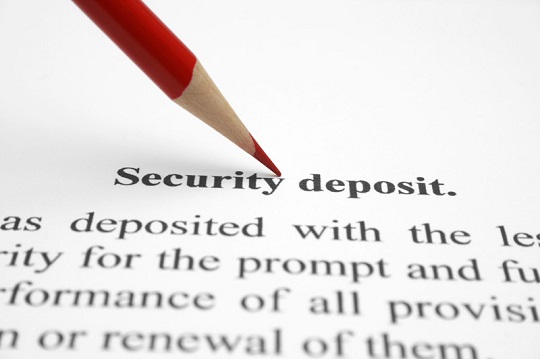 An important provision of an office lease is the security deposit provision. While it is beneficial to a landlord to maximize the size of the security deposit it receives from a tenant in order to ensure the tenant’s faithful performance of the terms of the office lease, transferring a cash security deposit to a landlord has real-world costs to the tenant.
An important provision of an office lease is the security deposit provision. While it is beneficial to a landlord to maximize the size of the security deposit it receives from a tenant in order to ensure the tenant’s faithful performance of the terms of the office lease, transferring a cash security deposit to a landlord has real-world costs to the tenant.
These costs include eliminating the potential use of the security deposit cash for other business purposes and putting the business at risk of unfairly losing its security deposit if the landlord acts in bad faith and does not return the security deposit as the landlord should under the terms of the lease. Indeed, it is wise for a business owner to negotiate the security deposit provision of their office lease.
Business owners have a significant amount of latitude in negotiating the security deposit provision of their office lease. Primary points of negotiation include:
- The amount of the security deposit. This amount is usually equal to a certain number of months of rent that the tenant pays under the lease.
- Whether part of the security deposit will be returned to the tenant at a certain point during the term of the lease. Some landlords will agree to return part of a tenant’s security deposit during the term of a lease if the tenant has been a good tenant who has not caused an event of default under the lease. The logic behind this tenant-friendly structure is that if the tenant has been a good tenant who has not caused an event of default under the lease, the amount of money that the landlord reasonably needs to protect itself is reduced. Thus, the landlord should return a part of the security deposit to the tenant during the term of the lease.
- Receipt of interest on the security deposit. Given that most office leases are multi-year, whether or not the tenant will receive interest on its security deposit (or whether, alternatively, such interest will go solely to the landlord) could make a difference. Indeed, if the tenant does not receive interest on its security deposit, the tenant will incur a hidden cost on its security deposit.
- Timing of the return of the security deposit. While it would be beneficial to a landlord for the office lease to state that it has a “reasonable” amount of time after the term of the lease to return the security deposit to the tenant, the tenant should consider insisting that the lease state exactly how many days after the end of the term of the lease the landlord has to return the security deposit. Doing so will help ensure that there is no miscommunication as to when the security deposit will be returned to the tenant and that the landlord will not drag this out.
The terms of the security deposit provision of an office lease have real-world consequences to a business. Given its importance and the amount of negotiating room tenants have with respect to this provision, a business owner would be wise to negotiate this provision with his or her potential landlord.


